 As parents, it's natural to feel concerned about your child's health and well-being, especially when they're experiencing symptoms or discomfort. While many childhood illnesses and injuries can be managed at
Read more
As parents, it's natural to feel concerned about your child's health and well-being, especially when they're experiencing symptoms or discomfort. While many childhood illnesses and injuries can be managed at
Read more
Blog
-
When Should You See Your Pediatrician?
posted: Apr. 09, 2024.
 As parents, it's natural to feel concerned about your child's health and well-being, especially when they're experiencing symptoms or discomfort. While many childhood illnesses and injuries can be managed at
Read more
As parents, it's natural to feel concerned about your child's health and well-being, especially when they're experiencing symptoms or discomfort. While many childhood illnesses and injuries can be managed at
Read more
-
How Often Should My Child Be Seeing a Pediatrician?
posted: Apr. 01, 2024.
 Here’s the scoop on why you should be bringing your little ones in to see a pediatrician regularly.
It's important that you make time to bring your children in to see
Read more
Here’s the scoop on why you should be bringing your little ones in to see a pediatrician regularly.
It's important that you make time to bring your children in to see
Read more
-
What To Expect at a Behavioral Health Evaluation
posted: Mar. 07, 2024.
 As a parent, it’s only natural to be curious about your child’s behavior. Is your child’s behavior normal, or is it a sign your child needs help? A behavioral health
Read more
As a parent, it’s only natural to be curious about your child’s behavior. Is your child’s behavior normal, or is it a sign your child needs help? A behavioral health
Read more
-
The Importance of Regular Well Visits
posted: Mar. 01, 2024.
 You want to safeguard your child’s health, but you can't do it alone. You need some help. Regular well visits to your pediatrician can protect your child’s health by providing
Read more
You want to safeguard your child’s health, but you can't do it alone. You need some help. Regular well visits to your pediatrician can protect your child’s health by providing
Read more
-
The Importance of Early Childhood Vaccinations
posted: Feb. 07, 2024.
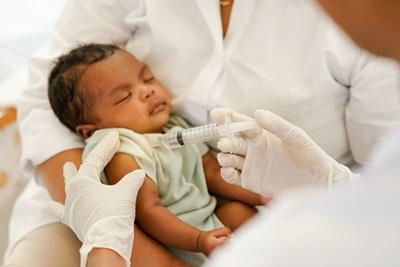 Children are one of the most vulnerable age groups because a child’s immune system is not as well developed as that of an adult. Early childhood vaccinations play an important
Read more
Children are one of the most vulnerable age groups because a child’s immune system is not as well developed as that of an adult. Early childhood vaccinations play an important
Read more
-
Childhood Obesity: Causes, Risks, and Strategies for Prevention
posted: Feb. 01, 2024.
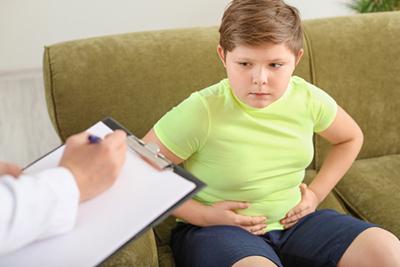 Childhood obesity affects approximately 30% of children in the U.S., and numbers continue to rise. According to the Centers for Disease Control and Prevention (CDC), obesity is one's body mass
Read more
Childhood obesity affects approximately 30% of children in the U.S., and numbers continue to rise. According to the Centers for Disease Control and Prevention (CDC), obesity is one's body mass
Read more
-
Best Ways To Prevent Ear Infections
posted: Jan. 07, 2024.
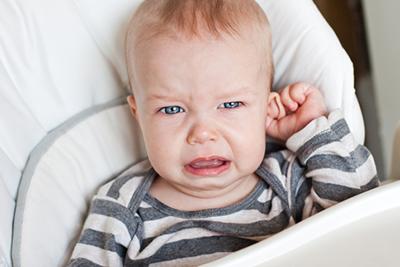 Ear infections are common in children because their ears are not fully developed, and it can be difficult to properly drain fluid. Ear infections can be brutal, and it can
Read more
Ear infections are common in children because their ears are not fully developed, and it can be difficult to properly drain fluid. Ear infections can be brutal, and it can
Read more
-
The Role of Pediatricians in Early Childhood Development
posted: Jan. 01, 2024.
 Monitoring your child’s development is an important part of what a pediatrician does. It’s important to visit your pediatrician, because child development is a complex area and needs the expertise
Read more
Monitoring your child’s development is an important part of what a pediatrician does. It’s important to visit your pediatrician, because child development is a complex area and needs the expertise
Read more
-
Promoting Mental Health in Children
posted: Dec. 07, 2023.
 You want your child to be healthy, and an important part of good health is great mental health. Promoting mental health in your child is one of the most important
Read more
You want your child to be healthy, and an important part of good health is great mental health. Promoting mental health in your child is one of the most important
Read more
-
Tips To Help Your Child Eat Healthier
posted: Dec. 01, 2023.
 Caring for your child involves many decisions each day. One of the most important things that you can do is ensure that they’re getting the right nutrition and that they’re
Read more
Caring for your child involves many decisions each day. One of the most important things that you can do is ensure that they’re getting the right nutrition and that they’re
Read more
-
Sports Injuries in Kids: Prevention and Treatment
posted: Nov. 07, 2023.
 Child sports injuries refer to physical harm in children while participating in sports and recreational activities. They can range from minor bruises to painful conditions, affecting muscles, bones, and joints.
Read more
Child sports injuries refer to physical harm in children while participating in sports and recreational activities. They can range from minor bruises to painful conditions, affecting muscles, bones, and joints.
Read more
-
The Importance of Well Care Visits for Adolescents
posted: Nov. 01, 2023.
 Find out why visiting the pediatrician is just as important for teens.
We all know just how important it is to bring newborns and children to the pediatrician’s regularly, but we
Read more
Find out why visiting the pediatrician is just as important for teens.
We all know just how important it is to bring newborns and children to the pediatrician’s regularly, but we
Read more
-
Asthma Prevention: A Pediatrician's Guide to Respiratory Health
posted: Oct. 09, 2023.
 An asthma attack can be scary, especially if it happens to your child. There are some steps you can take to help prevent an asthma attack. Our pediatrician can tell
Read more
An asthma attack can be scary, especially if it happens to your child. There are some steps you can take to help prevent an asthma attack. Our pediatrician can tell
Read more
-
Why Is A Sports Physical So Important?
posted: Oct. 01, 2023.
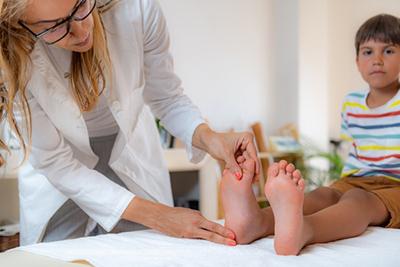 When your child wants to participate in their favorite sports, it’s important that you’re doing all that you can to keep them protected. Not only do they need all of
Read more
When your child wants to participate in their favorite sports, it’s important that you’re doing all that you can to keep them protected. Not only do they need all of
Read more
-
Common Childhood Illnesses
posted: Sep. 06, 2023.
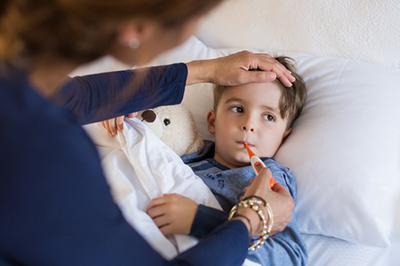 Your child comes into contact with millions of microscopic viruses and bacteria daily. Your child’s immune system also isn’t as robust as that of an adult. These two factors combine
Read more
Your child comes into contact with millions of microscopic viruses and bacteria daily. Your child’s immune system also isn’t as robust as that of an adult. These two factors combine
Read more
-
Understanding Developmental Milestones: Tracking Your Child's Growth
posted: Sep. 01, 2023.
 One of the best parts of being a parent is being able to watch your child grow and develop. Once they’re born, they’ll start hitting specific milestones throughout their lives
Read more
One of the best parts of being a parent is being able to watch your child grow and develop. Once they’re born, they’ll start hitting specific milestones throughout their lives
Read more
Pediatric & Neonatal Specialists
Preston Office Hours
Monday:
8:30 am-4:00 pm
Tuesday:
8:30 am-4:00 pm
Wednesday:
8:30 am-4:00 pm
Thursday:
8:30 am-4:00 pm
Friday:
8:30 am-4:00 pm
Saturday:
Closed
Sunday:
Closed
